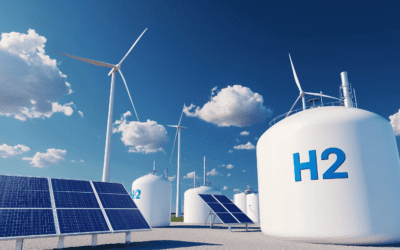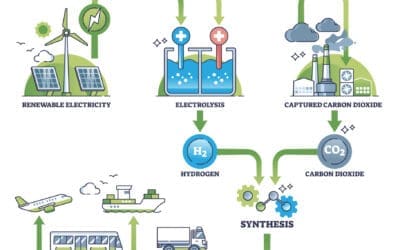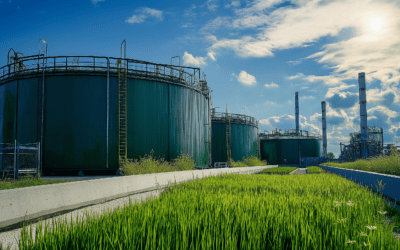
As we approach the 2024 Paris Olympics, an open letter from scientists has sparked a debate about the use of hydro fuel vehicles at the event. This article aims to provide a balanced perspective on the issue, considering both the concerns raised by the scientists and the broader context of sustainable transportation and other potential renewable fuels.
The Hydrogen Dilemma
The open letter expresses concern about the use of Toyota Mirai, a hydro fuel-cell car, as the official vehicle of the Olympics. The scientists argue that this choice is misaligned with net-zero goals and could potentially damage the Games’ green credibility.
While hydro fuel has been touted as a potential solution for decarbonising various sectors, including heavy industry and even domestic use, its current availability and infrastructure pose significant challenges. The All Party Parliamentary Group For Energy Studies (PGES) has received numerous presentations predicting hydrogen’s widespread use, but the reality is more complex.
The Case for Battery Electric Vehicles (BEVs)
The scientists make a compelling case for Battery Electric Vehicles (BEVs) as a more efficient and environmentally friendly alternative to hydro fuel-cell vehicles. They argue that:
- BEVs are recognised by the IPCC as the most effective way to decarbonise passenger transport.
- Green hydrogen-powered vehicles require three times more renewable electricity than equivalent BEVs.
- The current hydrogen production is predominantly from fossil fuels, with significant emissions.
These points align with our perspective at HVO Expert. We believe that while we wait for battery technology to improve and power infrastructure to be upgraded, there are more immediate and cost-effective solutions available.
The Role of HVO as an Interim Solution
At HVO Expert, we advocate for a pragmatic approach to reducing carbon emissions. While the debate between hydrogen and battery electric vehicles continues, we propose Hydrotreated Vegetable Oil (HVO) as an excellent interim solution.
HVO is a renewable, clean-burning diesel replacement that can significantly reduce carbon emissions in existing diesel engines without requiring expensive infrastructure changes. This makes it an ideal bridge technology while battery technology continues to evolve.
The Cost Factor
One crucial point raised in the open letter is the high cost associated with hydrogen storage facilities. These are reportedly tens of times more expensive than renewable liquid fuel storage and dispensing facilities. This aligns with our view that pursuing hydro fuel for road vehicles could become an exorbitant “white elephant” project.
In contrast, the switch to HVO fuel requires minimal investment in existing infrastructure, making it a more economically viable option for immediate carbon reduction.
Lessons from Past Experiences
The scientists cite examples of failed hydrogen vehicle trials worldwide, including during the 2020 Tokyo Olympics. These experiences highlight the practical challenges of implementing hydrogen-powered transportation on a large scale.
While it’s important to explore innovative technologies, we must also consider the immediate impact on carbon emissions. HVO offers a proven, readily available solution that can be implemented today.
A Balanced Perspective
While the scientists’ concerns about hydrogen vehicles are valid, it’s essential to consider the broader context of sustainable transportation. The transition to zero-emission vehicles is a complex process that may require a mix of solutions.
That said, we agree with the scientists that investing heavily in hydrogen infrastructure for passenger vehicles may not be the most efficient use of resources at this time. Instead, focusing on improving battery technology and power infrastructure, while using interim solutions like HVO, could provide a more practical path forward.
Conclusion
As we look towards the Paris Olympics and beyond, it’s crucial to make informed decisions about sustainable transportation. While hydrogen fuel may have a role to play in certain sectors, the current state of technology and infrastructure suggests that BEVs and renewable fuels like HVO offer more immediate and practical solutions for reducing carbon emissions in road transport.
We urge policymakers and event organisers to consider all available options and their long-term implications. By focusing on proven technologies and pragmatic interim solutions, we can make significant strides in reducing carbon emissions while continuing to innovate for a greener future.








